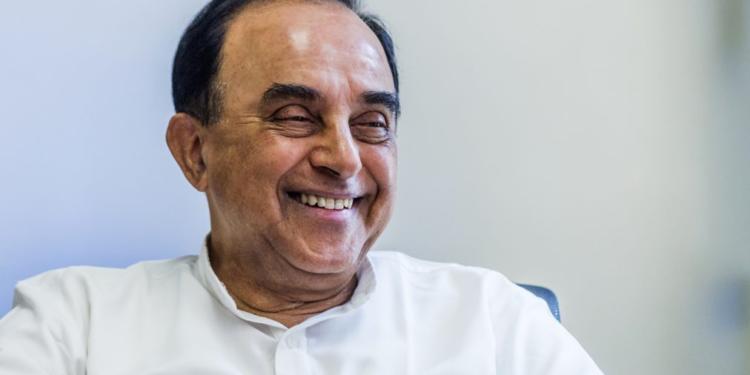Subramanian Swamy has won his case against Indian Institute of Technology (IIT) Delhi as a court directed the institute to pay his dues. Saket court has directed IIT Delhi to pay Subramanian Swamy the dues of around 40-45 lakh rupees. The premier institute had a longstanding (almost 5 decades long) dispute regarding politically motivated termination from professorship and non-payment of salaries. “After 47 years the IIT Delhi lost to me In The Saket Court and has to pay my back salary at annual 8% interest compounded. Earlier they had to restore me to my Professorship of Economics, which I resigned after a day. Let this be an example to all perverts in the academic world,” tweeted Swamy.
After 47 years the IIT Delhi lost to me In The Saket Court and has to pay my back salary at annual 8% interest compounded. Earlier they had to restore me to my Professorship of Economics.which I resigned after a day. Let this be an example to all perverts in the academic world
— Subramanian Swamy (@Swamy39) April 8, 2019
Subramanian Swamy is a respected academic. He completed education from the finest of institutes in India and the United States. He attended Hindu College, Delhi University and completed his master’s degree from Indian Statistical Institute, Kolkata. He did Ph.D. in Mathematics from Harvard University on a full Rockefeller Scholarship. He later worked for the United Nations Secretariat and also served as a consultant for World Bank. After obtaining a Ph.D. from Harvard in 1965, Swamy joined the same institute as an assistant professor and got promoted to associate professor in 1969.
In 1969, Subramanian Swamy was invited by Amartya Sen to join the Chinese Studies department at the Delhi School of Economics. He travelled to India to join the department but his appointment was cancelled due to critical views on Nehruvian economic policy and India’s nuclear policy. The left-liberal academics in India claim to give representation to diverse views. The termination of Swamy’s appointment due to the ideological difference is a prime example of the fact that ‘so-called liberals are not so liberal’. Back in the late 60s, the left-liberal intelligentsia of the country cancelled the appointment of a highly respected academic due to his political ideology.
Amartya Sen, the person who presents himself as conscience keeper of liberal thought did not oppose the cancellation of Swamy’s appointment. In fact, he did not even raise his voice against cancellation. Swamy later joined IIT Delhi as Professor of Mathematical Economics in the same year and taught there till 1972 when the Broad of Governor removed him from the position. However, he took the case in court and after 19 years in 1991, the Supreme Court of Indian reinstated him as a professor. But Swamy resigned from the post a day after and asked for remuneration of the 19 years’ work because his removal was illegal. The case took almost 3 decades and finally, the court has directed the institution to pay. “We will inform the board and let them further decide on what should be done,” said IIT Delhi director V. Ramagopal Rao.
Swamy’s case is the best example of how the left-liberal establishment discriminated against right-wing intellectuals. The establishment systematically removed the people opposed to Congress’ or left’s narrative of economics and social sciences. The people like Ramchandra Guha ask ‘where are India’s right-wing intellectuals’. The answer lies in Swamy’s case example. Right-wing intellectuals could only flourish if the country has a free market economy so that acceptance of content could be decided on the basis of its popularity among people. If the intellectual institutions (academia, press, and publishing) are dominated by the government then the intellectual narrative would align the views of the government. The left-wing governments in India promoted the same line of thought in the intellectual establishment and most of the people did not oppose it because they were on the government’s payroll. As argued by Swamy, his case would be an example to all perverts in the academic world.

























